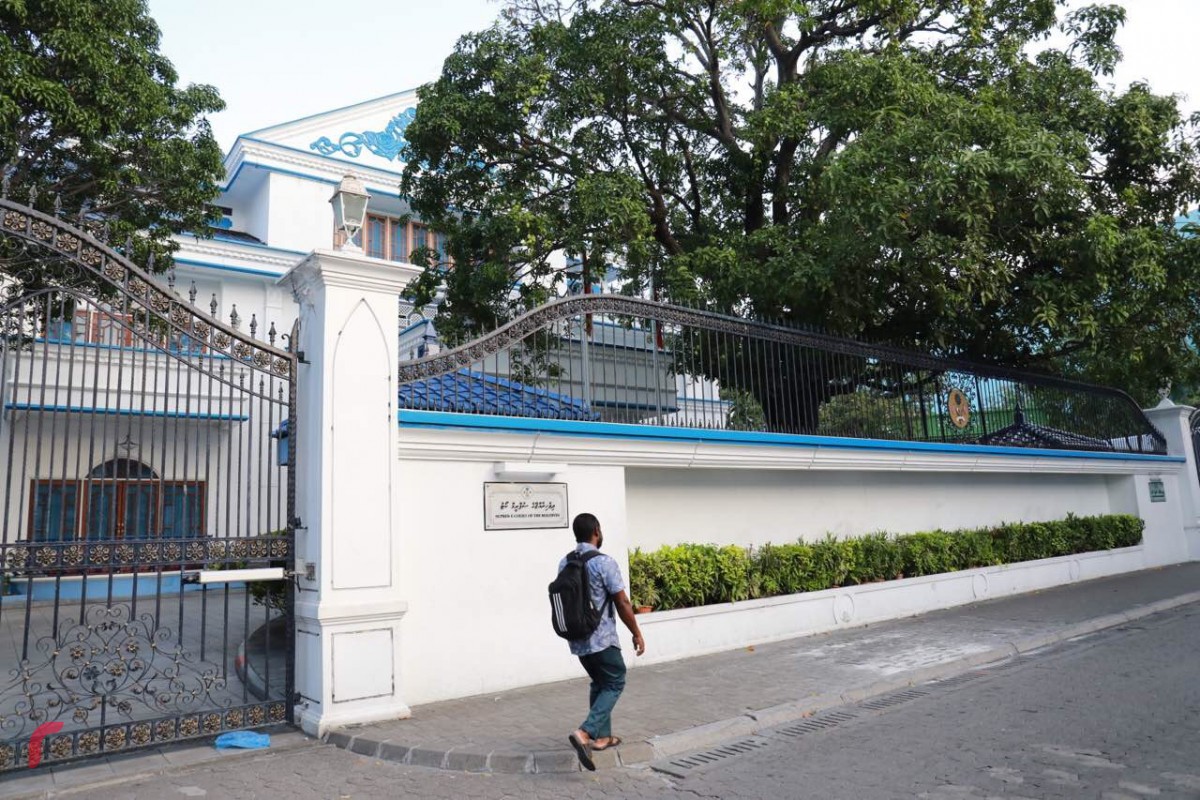Maldives top court says changes to Judges Act \'valid\'
The amendments were passed by parliament on 13th March, and ratified the next day


Supreme Court of the Maldives
Maldives top court has on Wednesday ruled against revoking the recently ratified amendments to the Judges Act.
The case was filed at the Supreme Court by the Joint Opposition in March, with the court concluding all the hearings in the case in March itself.
In its ruling, the court noted that the amendments were passed without the constitutionally required quorum, noting that 43 lawmakers must be present on voting on any matter that requires compliance by citizens. It further noted that there were only 39 members at the sitting when the vote was passed, and that 36 members had voted in favor.
However, noting that the state had argued that the matter was passed under a doctrine of necessity, the ruling said the argument ‘is valid’. It added that the doctrine of necessity is applicable if there is a threat of irreversible damages due to an issue.
The court noted that the necessity element cannot be used in ‘normal’ circumstances.
The ruling, signed by all three justices, said that the state has noted that the parliament is currently ‘at a halt’ and that 43 lawmakers had continuously missed parliament sittings ‘due to issues with how the parliament is functioning’. Noting that the MPs had missed the sittings ‘on purpose’, the ruling said that lawmakers do not have the option to skip sittings without an acceptable reason.
Hence, the court said that the doctrine of necessity can be applied in this situation, as the parliament is at a halt.
According to the Constitution, ‘a judge may be removed from office only if the Judicial Service Commission finds that the person is grossly incompetent, or that the Judge is guilty of gross misconduct, and submits to the People’s Majlis a resolution supporting the removal of the Judge, which is passed by a two thirds majority of the members of the People’s Majlis present and voting’.
However, the recently ratified amendments to the Judges Act states that if a sitting judge is convicted of a criminal offence, and if the Supreme Court decides to uphold the conviction, after all avenues for appeal have been exhausted, ‘the judge shall automatically be removed from his position’. It also notes that if the judge fails to appeal within the given 10 days, it will automatically be declared that all court procedures have been completed.
With these changes to the Judges Act, Chief Justice Abdulla Saeed and Justice Ali Hameed stand to lose their position. Both are currently under police custody, and have been charged with terrorism and conspiring to overthrow the government, as well as accepting bribes to do so.
The Judges Act was ratified by President Abdulla Yameen on 14th March, along with the anti-defection law. It was approved by the parliament on 13th March.






